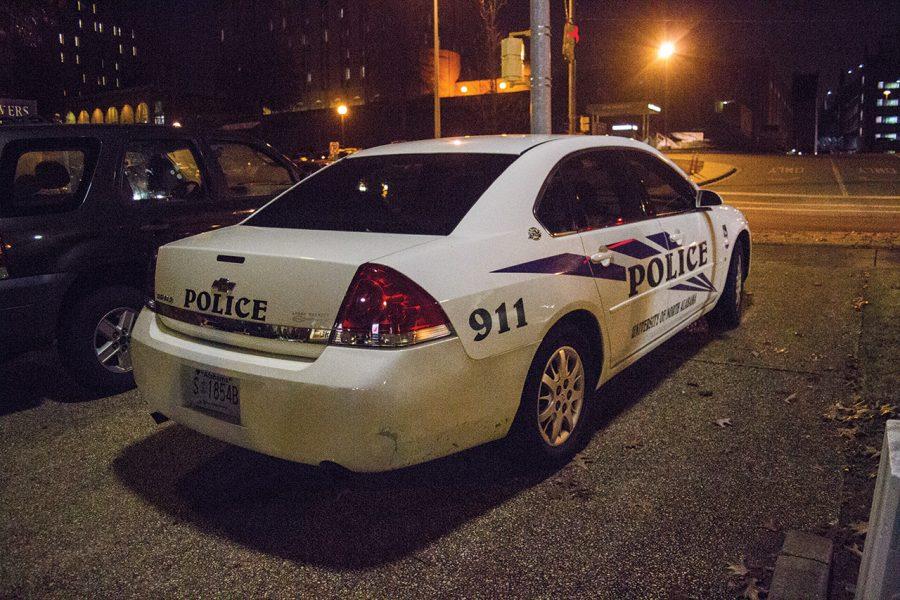Authorities break down gas expenses for campus vehicles
February 20, 2014
In a world of rising gas prices, students may wonder how different departments on campus are able to keep their vehicles fueled and ready for service. The university police department uses an average of 515 gallons of gasoline per month, said UNA Police Chief Bob Pastula.
“We average $1,713 per month for that fuel, paying an average of $3.32 per gallon for the past six months,” Pastula said.
Junior Cody Harrison is surprised the campus police department uses that much gasoline each month, he said.
“The campus doesn’t seem to be that big,” Harrison said. “But, if they’re getting their job done, they’re doing their job.”
Unlike other police departments, the university police budget is not directly funded by the state, said Interim Vice President for Business and Financial Affairs and Controller Donna Tipps.
“State money and tuition money go into the university operating budget and the university police budget is a part of that,” she said. “Because they are a function of the university, their funding is provided by us.”
Harrison thinks the state should provide funding for the university police department because they are licensed like any other department, he said.
“I would think they would be state funded,” Harrison said. “It doesn’t make sense for the university to pay for it.”
Junior Clint Frederick disagrees.
“The police department is a part of UNA so it makes sense for the university to fund it,” Frederick said. “I don’t think the state should pay for it.”
These expenses are different from those of the university motor pool vehicles, such as vans groups from the university can use for travel, Tipps said.
Any time a university motor pool vehicle is checked out for university travel, gasoline expenses are paid for with a university credit card. The expenditures are then charged to the department that checked out the vehicle, she said.
“We don’t actually have a budget for the university’s gasoline spending,” Tipps said. “The gasoline used in university vehicles is purchased with a credit card and then the money is taken from the budget of whichever department used it.”
Each department has a budget it goes by and the head of that department is responsible for determining how the money will be used, she said.
“Each one of the cost center heads has an expense budget, but there’s not an exact number on gasoline,” Tipps said.
Senior Lillie Pike thinks using credit cards is the most efficient way to organize the gasoline spending.
“I can’t think of any other way they could keep track of (the spending),” Pike said. “It just makes sense to do it the way they are now.”
However, the university should cover a portion of the gasoline expenses for student organizations that use the university vehicles for travel, she said.


